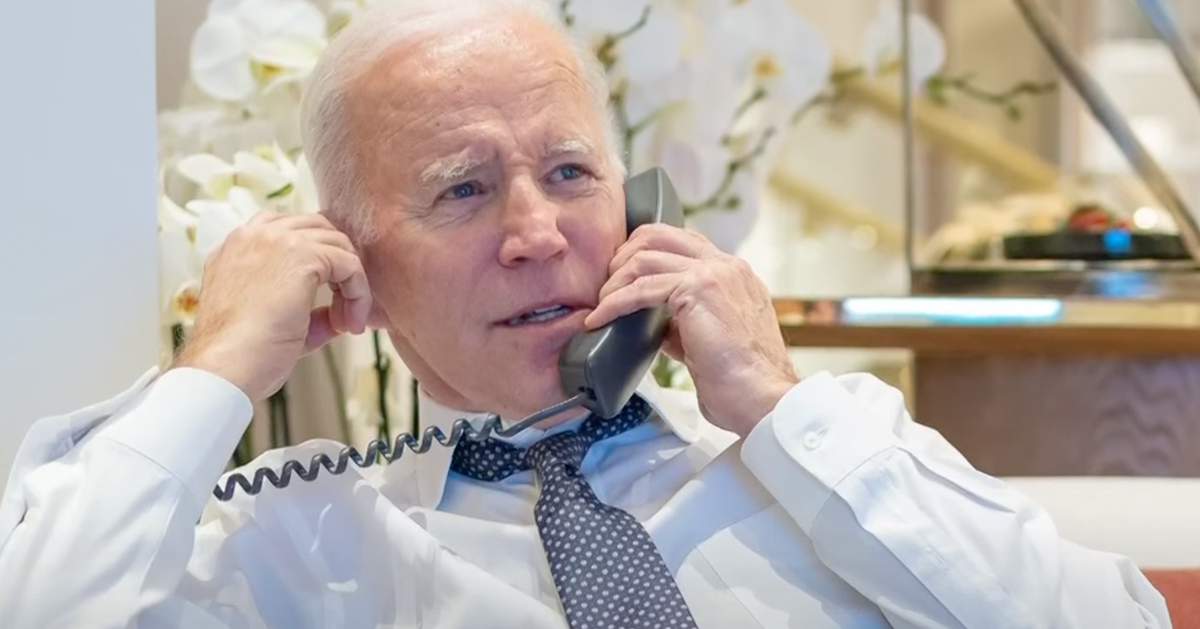Hunter Biden Pardon Leads to Joe Biden's Lowest-Ever Approval Rating
President Joe Biden's approval ratings have plunged to their lowest since he assumed office, influenced significantly by his decision to pardon his son, Hunter Biden.
The Marquette Law School Poll released in December reflects the changes in public sentiment during Biden's presidency and provides insight into the growing support for President-elect Donald Trump, as the Washington Examiner reports.
Biden’s latest approval rating stands at a critical low of 34%, with a striking 66% of respondents expressing disapproval.
This marks a steady decline in his popularity with the public, as his ratings have consistently stayed below the 40% mark since September 2023. The Marquette Law School Poll surveyed 1,063 adults between Dec. 2-11, with a margin of error of plus or minus 3.6 percentage points.
Hunter Biden Pardon Impacts Perception
The president’s choice to pardon his son, Hunter Biden, appears to be a significant factor contributing to the current dip in approval. Poll results indicate that only 29% approved of this action, while a notable 71% disapproved.
The public's discontent is reflected in Biden’s net favorability rating, which has plummeted to negative 25 points compared to a net negative 4 points recorded as far back as November 2021.
Such a steep decline in public opinion may be attributed to the controversial nature of the pardon. While attempting to navigate personal and professional spheres, this move has evidently not resonated well with the majority of the American populace.
Vice President's Ratings Relative To Biden's
In comparison, Vice President Kamala Harris has experienced a less severe decline in favorability. Her net favorability stands at negative 16 points, indicating a less severe decrease compared to Biden’s figures.
Despite suffering setbacks since her peak approval levels in July and October of previous years, Harris’s standing has managed to endure better than the president's.
This lends insight into the public’s differentiated views of the administration’s key figures. The vice president’s less pronounced decline reflects a partial retention of support amidst ongoing evaluations of Biden’s leadership.
Increased Approval for Trump
Conversely, President-elect Donald Trump is experiencing a resurgence in public favor. His current approval has risen to 53%, with only 47% disapproving of his performance.
Trump's favorability ratings have notably improved from a net negative 35 points recorded back in January 2022 to a near break-even net negative 1 point according to the latest data.
Charles Franklin, director of the Marquette Law School Poll, noted, “This is Trump’s highest approval rating since March, when this question of retrospective approval was first asked.” His upward trend in ratings indicates a shift in public sentiment, potentially influenced by Biden's current challenges.
Comparative Favorability Ratings Over Time
Franklin further commented on the changes in net favorability for figures in the political landscape, including Vice President Harris. He mentioned, “Since losing the presidential election, her net favorability has declined from her all-time highs of July and October, though not falling to the levels of the winter and spring before she became the Democratic nominee.”
This analysis by Franklin highlights the evolving perceptions of public figures. Trump’s recent ascension in favorability marks a pivotal departure from previous public sentiment, contrasting with the stabilization seen in Harris’s ratings.
As political dynamics continue to shift, the contrasting approval ratings of Biden and Trump underscore a significant realignment among the electorate.
Biden’s ongoing struggle to maintain public confidence, juxtaposed with Trump's rising approval, paints a complex picture of American politics in this transitional period.
The recent polling data reflects broader implications for both the exiting and incoming administrations. Navigating these shifts will require addressing the underlying causes of discontent while balancing new opportunities for public engagement. The evolving political climate remains a key focus as the country moves forward under new leadership.





